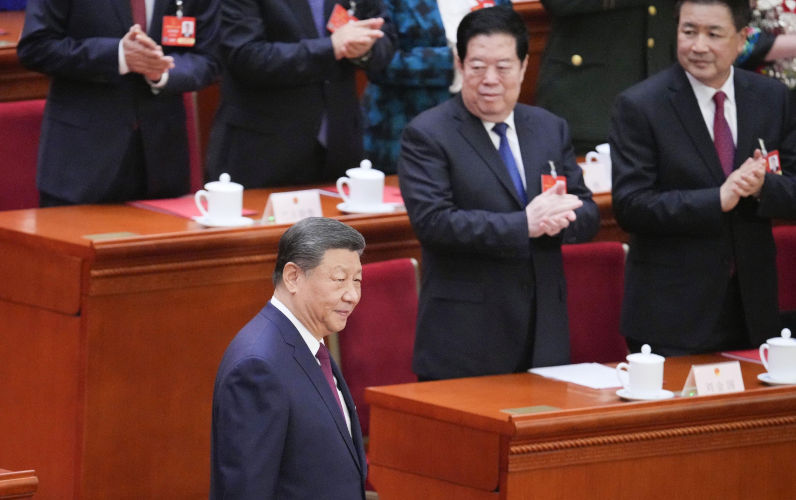Xi pushes for fair trade after Trump tariffs land
April 17, 2025
After President Donald Trump’s decision to exempt selected electronic goods from tariffs, the gloves are temporarily off between Washington and Beijing. However, though some sanity has returned to the White House, the damage has already been done.
President Xi Jinping did not blink when Trump levied tariffs of 145% on Chinese goods entering the US. Dismissing Trump’s ploy as a joke, Xi snubbed Trump by imposing a 125% tariff (from 34% and 84%) on US goods entering China which totalled US$144 billion in 2024.
By upping the ante, China has indicated it is willing to forego trade with the US to protect its national pride. Xi must have reckoned he could do without the US market as China expands market access elsewhere in Europe, Africa, South America, the Middle East and the Asia Pacific region.
The world has taken notice of China vowing “to fight US to the finish".
Confident of support of his leadership at home and playing down the seriousness of the tariff tiff with Washington, Xi is visiting Malaysia the week of 14 April before flying to Phnom Penh and Hanoi. After years in office, he must have realised Trump’s grumpiness is not merely leading to a skirmish over trade deficits, but a test of China’s sovereignty, dignity, pride and questioning his leadership.
Had Xi flinched, he would have been seen as weak and dispensable. Instead of capitulating to pressure, Beijing has embraced what looks like a long-term strategy, advocating for multilateralism, fair trade, and mutual respect between nations.
By ordering massive dumping of US treasury bonds, Xi has exposed another weakness in the American financial system that China could easily exploit. When push comes to shove, he could dump some of China’s US$759 billion in US Treasury holdings overnight as Japan and Canada did.
Rather than escalate tensions through further rhetoric, Xi chose to handle the situation with calm and clarity. His message was simple: China would not be bullied.
Promising he would no longer engage in a numbers game with the US that would derail global markets, his action has won the respect of many in the global South. His strategic patience in turning a moment of crisis into an opportunity for China to reinforce its economic independence has been appreciated by those felt betrayed by Trump.
At a time when unpredictability was the hallmark of Washington’s trade policy, Xi’s leadership offered stability — both to the Chinese people and the international business community.
Trump framed the trade war to “rebalance” US-China relations, but in practice, his approach was rooted in unilateralism. The tariffs were abrupt, the demands sweeping, and the consequences far-reaching. For many countries watching from the sidelines, this marked a troubling shift away from international norms that violate international trading norms.
Xi’s administration accelerated efforts to reduce China’s dependency on US technology, launched reforms to support domestic consumption, and expanded partnerships through initiatives like the Belt and Road. These moves weren’t just a reaction to the trade war – they reflected a broader strategy of resilience and leadership.
Xi does not view the trade war with Washington as a setback, but as an opportunity. His refusal to yield under pressure sent a clear message: China values dialogue, but it will never be coerced. Under his leadership, China doubled down on innovation, investing in advanced manufacturing, artificial intelligence, and green technologies.
Xi’s approach speaks volumes about his leadership style. In the meantime, as geopolitical dynamics continue to unravel, China emerged more self-reliant, more assertive, and more determined to chart its own course in the world economy.
Xi’s handling of the trade war with the US is a reaffirmation of China’s ability to navigate great-power competition without compromising its principles.

